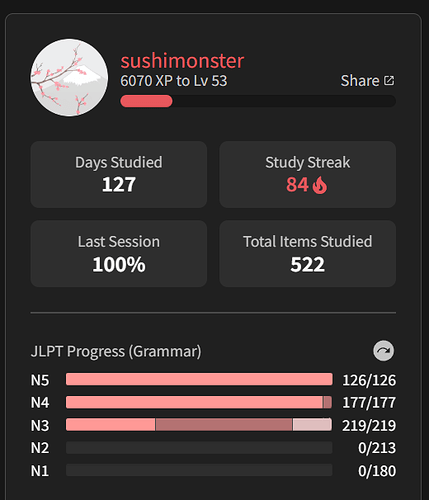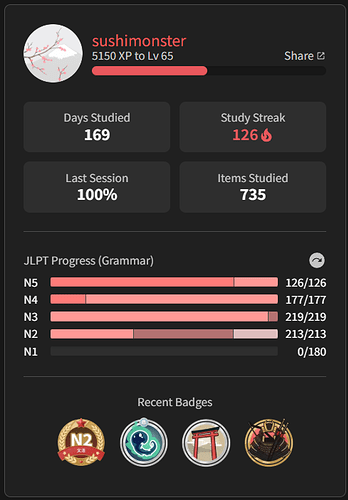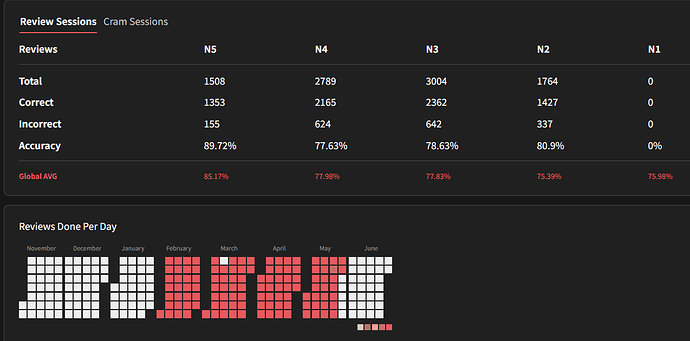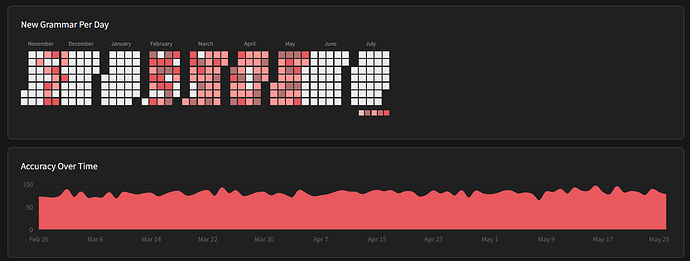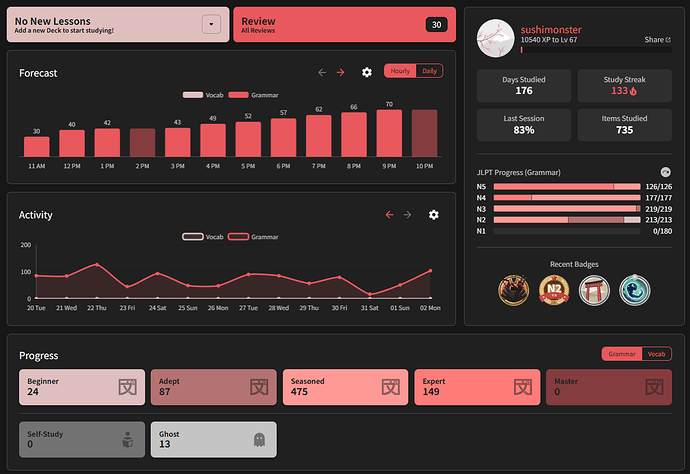First post here but I was reading another thread regarding this and realized I was doing something similar. There was a lot of outrage in that thread so I decided to make my own to perhaps get some feedback. I’ve been documenting my journey for a few months now on WaniKani (WFH Robot Log). Off the bat, I think should state that there’s no way I think I will be JLPT N1 ready in 1 year (2 years is possible though!). But I do think I can cover bunpro N1-N5 + 4-5k vocab words in about a year. Comment if you agree or disagree.
No prior Japanese study. Used to watch anime a VERY long time ago. Aside from Edgerunners, I don’t think I’ve watched anything seriously for over 10 years. Started learning Japanese in October 2024 with 2K anki deck at 20 WPD (finished in early January) and WK. Used Renshuu to learn hiragana/katakana via mnemonics + some grammar before switching to bunpro (around November I believe). Had some hiccups but I’m essentially doing 6 grammar points a day on bunpro (3 morning, 3 evening) following someone else’s strategy (writing notes on each grammar point as I learn them). I have an entire notebook filled with N4 (which I just finished), and will start N3 this Monday. Essentially, if you do the math and add a few days of lee-way, N3/N2 take 36 days per at 6 grammar points per day. But the most challenging ones (I’m told) are N3/N4, and N2/N1 are relatively easier. So once I’m done hard focusing N3, it’s relatively chill. At the current pace, N1 bunpro will be done by August. Of course, that doesn’t mean I’m N1 JLPT ready, but now that I’ve been exposed to most grammar points, I can let it sink in with time.
The chill zone will be after August where both bunpro grammar and 2k anki deck will be on review while I slowly work through a 10K anki deck (already over 2K words in and learning new words at 10 wpd). Focus will be on slowly adding vocab while focusing on listening and output. I’ve been watching Terrace House but I feel like it’ll be more useful after I have N3 covered. Still useful though! Technically after August I only have 2 months before I hit the official 1 year mark but I’m not holding myself to 1 year exactly. I just want to get the fundamentals out of the way quickly (so that they have more time to marinate), and then slowly add vocab over time while trying to actually use the language in real ways.
Daily learning schedule is something like this:
Wakeup: Bunpro reviews, WK reviews, 3 Bunpro grammar points
Lunch: Bunpro reviews, 10K Anki deck (~120 review, 10 new cards)
After work: Bunpro reviews, WK reviews, 3 Bunpro grammar points
Before bed: 2K Anki deck (Finished, 60 cards in review), 10K Anki deck (~120 review, 10 new cards)
Anki deck used to take me SO long to do (2-3 hours), especially when reviews were in the 240 range and my knowledge of grammar was nearly zero. But now I just FLY through them in about 30 minutes. Doing 10 new cards per day instead of 20 helps a lot. Focus at this time is more on grammar than vocab.



